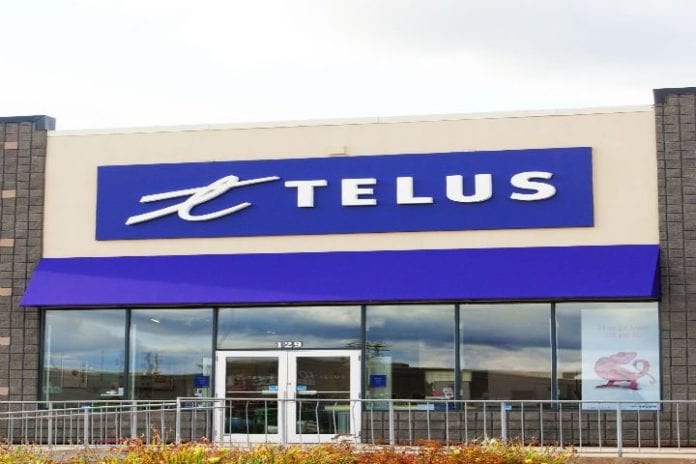Telus said it will look for revenue opportunities in the internet of things space
Canadian carrier Telus said it has reached download speeds of 28 Gbps in its 5G trials, the company’s CEO Darren Entwistle said during a conference call with investors.
“We’ll be using 5G to complement our fiber build where we can look at it as an alternative access technology to improve the economics of broadband connectivity with certain areas that we don’t feel it’s prudent to address through our pure fiber,” said Entwistle.
Telus’ CFO Doug French said that the carrier is currently building 5G small cells concurrently with its fiber builds.
“There will be potentially a small uplift in 5G equipment required to implement full 5G, but will be offset by some of the reductions in fiber that we see over time. So we’re not actually seeing a significant step-up in capital intensity,” French said. “As you go into the 5G world, it will be small amounts here and there on a perspective of higher, lower, but it’s not going to be a significant step,” he added.
Telus is currently working with Chinese vendor Huawei in the 5G field. In February of this year, Huawei and Telus launched a 5G wireless-to-the-home (WttH) trial service using specially-designed 5G customer premise equipment (CPE) unit. The trial took place in downtown Vancouver’s “5G Living Lab,” a joint initiative between Huawei and Telus.
The 5G trial, which began in early December, is also being conducted in the homes of Vancouver-based TELUS employees and is based on millimeter wave tests that the two companies conducted in June 2017 in Vancouver. The vendor said the trial has achieved single-user download speeds of over 2 Gbps.
Huawei highlighted that the network utilizes elements built as part of the Telus/Huawei 5G Living Lab. The trial system operates in the 28 GHz band with 800 megahertz of bandwidth and includes many 3GPP key technologies, such as massive MIMO, filtered orthogonal frequency division multiplexing (F-OFDM), and the polar code mechanism.
During the conference call, Entwistle also highlighted that Telus aims to look for new sources of revenue, mainly in the internet of things (IoT) segment.
“As we get into a world where the machine-to-machine wireless sensors are more significant in number than smartphone wireless devices, ensuring that we capture that wireless IoT, [internet of everything] revenue as the growth of sensors significantly outstrips the growth of smartphones is a key area for us to focus on, on both the retail level and at a wholesale level across key verticals that we think are attractive,” the executive said.

